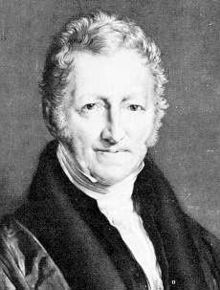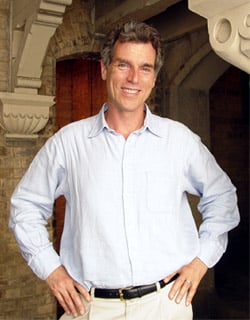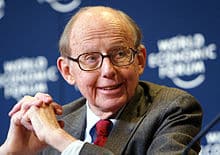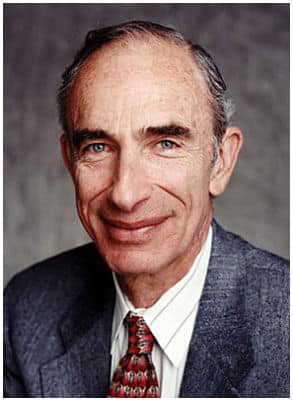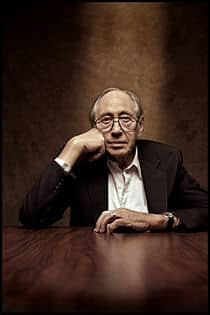William completed his Bachelor of Science and Master of Arts in 2013. He current serves as a lecturer, tutor and freelance writer. In his spare time, he enjoys reading, walking his dog and parasailing.
Article last reviewed: 2022 | St. Rosemary Institution © 2010-2025 | Creative Commons 4.0
Era Time Millions of Yrs Ago Began — Ended Major Geological Events Major Biological Events Canadian Landforms Created Precambrian (earliest life) 4600 570 – volcanoes erupted, many cycles of mountain building and erosion – 1st single-celled organisms – 1st multi-celled organisms – Canadian Shield formed Paleozoic (ancient life) 570 245 – periods when large parts…
The New National Convention National Convention after Robespierre was much more conservative than before – entrenched values of moderate middle class -> drastic change for once-powerful groups like sans-culottes and Jacobins who were forced underground (‘sans-culottes’ even became a derisive term) French economy struggled during winter of 1794–1795, with widespread hunger Convention worked hard to…
The National Convention and the French Republic Autumn of 1792, revolutionary government set about electing a National Convention of delegates to oversee France (late September, first election took place under rules of Constitution of 1791) Only 1/3 of newly elected members had sat on a previous assembly, and many new members belonged to either Jacobins…
Louis XVI’s Flight Louis XVI outwardly supported Revolution but contacted rulers of Austria, Prussia, and Sweden, asking help in restoring his power June 1791, Louis XVI and family attempted to escape to Austria to meet Austrian army and arrange an attack on revolutionaries Bourbons caught just before reaching border and brought back to Tuileries in…
The Tennis Court Oath After splitting from Estates-General, delegates from 3rd Estate (now National Assembly) were locked out of usual meeting hall and convened on a nearby tennis court instead All but one of the members took Tennis Court Oath, which stated simply that they would remain indissoluble until they had created a new national…
Necker and the Estates-General Swiss banker Jacques Necker returned as director general of finance and insisted that Louis XVI call together Estates-General, a congress that originated in medieval period and consisted of three estates (1st Estate was clergy, 2nd Estate the nobility, and 3rd Estate the rest of French people) May 5, 1789, Louis XVI…
French Monarchy and Parlements French royalty prior to French Revolution were a study in corruption and excess Doctrine of divine right maintained kings were selected by God and thus perpetually entitled -> resulted in absolute rule and provided commoners with no input into governance of France No universal law in France; rather, laws varied by…
Feudalism and Unfair Taxation No one factor was directly responsible for French Revolution Feudal oppression and fiscal mismanagement contributed to a France on verge of revolt Number of financial advisors reviewed weakened French treasury with same conclusion à France needed a radical change in tax system Charles de Calonne suggested that France begin taxing previously…
Thomas Malthus Biography Thomas Malthus was a political economist where he became well known around the world because of his economical views on population growth. Thomas Malthus was born on February 13, 1776 in Surrey, England. He was known as Thomas Malthus but throughout his lifetime he went by his middle name, which was Robert.…
Biography: Ted Thomas Dixon was born in 1956, British Columbia, in Victoria. He currently resides in a rural town outside of Toronto, Canada with his wife and son. Following his study at the University of Victoria, in the late 1970’s he moved to Ottawa. In 1980 Tad received a B.A. degree in Political Science from…
Biography: Samuel Huntington was born on April 18, 1927. He was a political scientist who was known for his analysis of the relationship between the military and the civil government. He graduated from Yale University and received a doctorate from Harvard where he taught. Huntington was 81 years old when he passed away in 2008…
Biography: Paul Ralph Ehrlich was born in Philadelphia on May 29, 1932. He is currently the professor of population studies in the department of biological sciences at Stanford University and president of the Centre of Conservation Biology. He is the researcher and author of the book “The Population Bomb” in 1968. He has a B.A,…
Biography Julian Lincoln Simon is a well known theorist who was born on February 12, 1932. He worked as a professor of business administration at the University of Maryland and a Senior Fellow at the Cato Institute. Throughout his lifetime, he had written many books and articles mostly with economic topics. His most prominent topics…
John Maynard Keynes was a British economist. He was born in 1883 in Cambridge, England. His mother Florence Ada Keynes was the mayor of Cambridge and his father John Neville Keynes was an economist. At first, John did not realize that he wanted to become an economist like his father. Instead, he went through many…
Biography Alvin and Heidi Toffler Heidi helped Alvin write some of his books, but credited them as Alvin Toffler Influenced many leaders around the world Described by “Financial Times” as the “World’s most famous futurologist” Also mentioned in “People’s Daily” as one of the top 50 foreigners that shaped modern China “Toffler Associates”, the executive…
Biography Adam Smith was born in Kirkcaldy, Fife, Scotland, the date of his birth is unknown but, he was baptized on June 5, 1723. Smith was a Scottish philosopher and economist who became famous after writing his book, “The Wealth of Nations” in 1776. Theory Adam Smith’s wrote a book called The Wealth of Nations,…
STORING VALUES IN THE COMPUTER’S MEMORY A variable is a named storage place in memory. There are 2 kinds of memory: Temporary memory (RAM), holds the work your computer is currently processing. Permanent memory (disk memory), holds data after you switch off your computer. A variable is stored in temporary memory. Therefore, it only exists…
An array is used to store many similar types of data using a single variable name. The array should be pictured as a container with many compartments. The container has one name, but each of the compartments is numbered. In order to refer to the value stored in a single compartment, we must use the…
Counters There are a number of times in computer programming where the user needs to determine the number of times a certain event occurs. Examples: Counting the number of times a person enters a number (in order to find the average) Determining how many rolls of two dice were needed before a 6 was rolled…
The DO … LOOP is used to repeat a block of statements while a condition is true OR until a condition becomes true. This type of loop is required when you don’t know how many repetitions you will need before you start. When you know the number of repetitions, you use a FOR .. NEXT…


